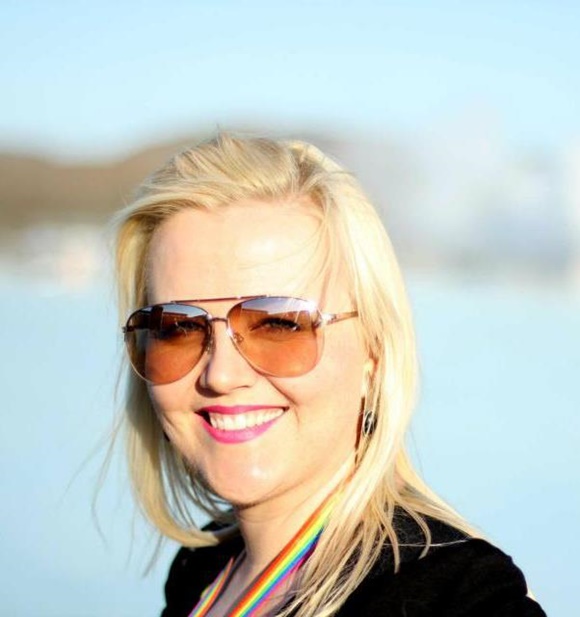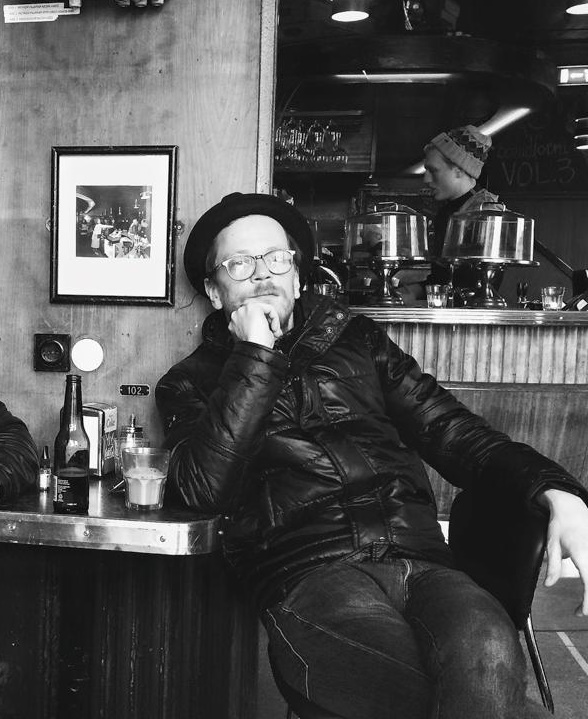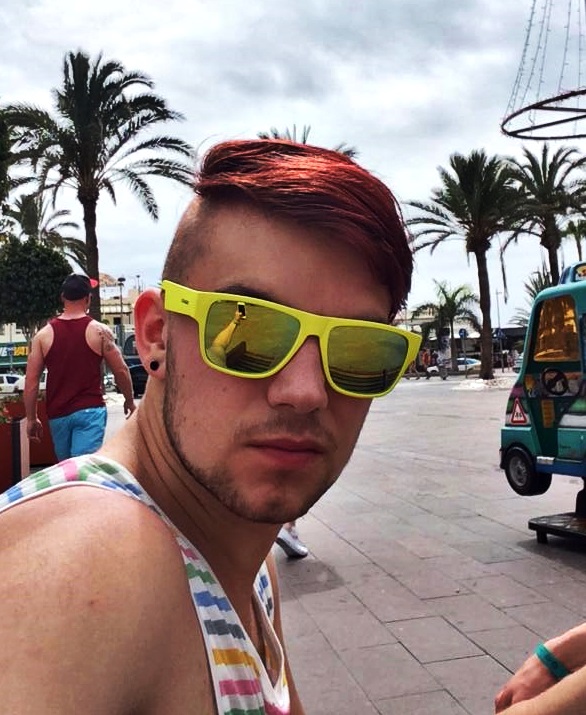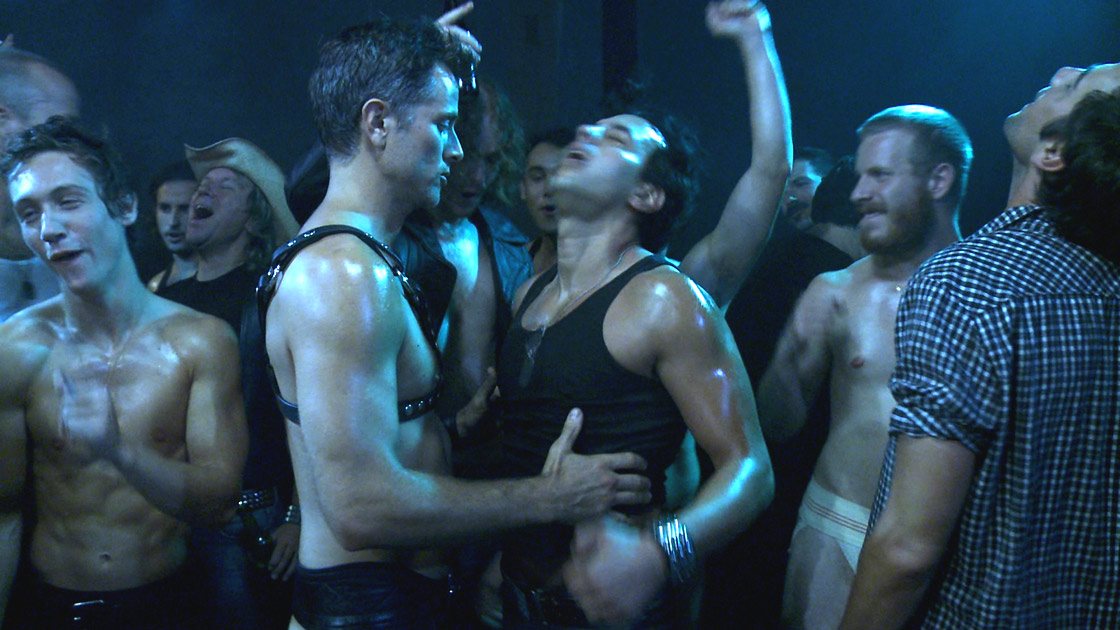Last week celebrity Felix Bergsson declared the Icelandic gay scene as good as dead. And since, Facebook has been buzzing with comments from those who either agree or oppose. Many of whom want to see some kind of changes brought about. But how exactly do you please a target group which is both small and extremely diverse? And at the same time maintain a profitable business? To get some answers we decided to call in the experts, namely the people who’ve already been in the business of running gay bars.
Diversity and discrimination don’t go along
Eva María Þórarinsdóttir and her girlfriend Birna Hrönn Björnsdóttir were managers of Trúnó, a gay café, and Barbara, a gay club, from 2011 to 2012. Both places closed down when they left to work full-time at their travel agency, Pink Iceland.

“At that time, Trúnó was a great addition to the gay scene in Reykjavík because there hadn’t been any official gay café here for years,” explains Eva María. “Barbara was very much like Kiki is today, a great place to go dancing. Therefore the only way to meet others like you was on the dance floor. Whereas with Trúnó, you could go there for a lunchtime pizza and possibly meet the love of your life too.”
Eva María says that when you’re running a gay bar, it is impossible to exclude those who’re not part of the target group. “It can be very difficult to control the traffic in a place like Kiki, which is supposed to welcome everybody and embrace diversity. So how can you discriminate against people and not allow straight people to enter? There’s a fine line there that you have to be careful with.
Also, if you’re running a club where people have a good time and feel safe, it’s bound to happen. I know from experience that the straight girls flock to the gay clubs because there they feel safe and can party with their friends, who may or may not be gay, without worry.
“So how can you discriminate against people and not allow straight people to enter? There’s a fine line there that you have to be careful with.”
But the atmosphere has changed. I think that the older gay guys have more need for special gay places whereas the youngest generation of club goers is now going to almost any place, partying with their group of friends. That’s simply the way society has evolved, overall it’s much easier to be gay these days and that’s a fact.”
Now, Eva María and Birna organize tours and events for gay tourists and are very much in touch with the demand during the tourist season. “What is lacking the most is a café. Our customers would really like to mingle with their own kind when they’re over here and it’s a shame we can’t send them to nice café or sit-down bar to hang out.”
Gay bars need to be gay operated
Óli Hjörtur Ólafsson, was manager of Q Bar for two and a half-year, from 2007 to 2009, and later Dolly from 2012 till 2014. Both places have now closed. He admits that running a bar which is exclusively aimed at gay or rather queer people is quite challenging but says it’s definitely doable.
“You need to be on your toes all the time, trying to accommodate your target group, which is very diverse. There’s not that many of us here, we are a minority but such an incredibly diverse group. It’s very hard to try to please everybody, that’s what we tried to do at Q bar.

I found that choosing the right music was the most difficult part. That’s what people got mostly upset about and complained about! But I also hear that the girls thought there were too many guys in there, and the guys complained about all the girls being there. I mean, you know that a huge part of clubbing is to hook up with someone and obviously, people want to go somewhere where they can be sure to meet someone of the same kind.”
Óli Hjörtur says part of the problem might be that not enough gay people are in the business of managing bars and clubs in general. “I think it’s essential that such a place is 100% gay operated. But you need to be ready to make sacrifices, it takes up a lot of your time and energy and it wears you out in time. So I really think we need more gay people who are ready to do the work too. There could be a big group doing it together.
“I also hear that the girls thought there were too many guys in there, and the guys complained about all the girls being there.”
I think the best idea is to have a café/bar, a bit like Trúnó was (why did it close down?). That’s a great concept, a café aimed at lesbians and gays and open till 1am just like the bars.
In addition to that, it would be great to have another little place, a private club even, where you can walk in, not having to wonder whether a guy is gay or not but simply have the freedom to try to hook up with anyone in there. Because let’s face it, the clubbing scene is largely driven by people’s desire to hook up with someone, it’s the same in homosexual and heterosexual culture.”
Those who complain the most don’t attend anyways
Hjálmar Forni Sveinbjörnsson is one of those who have tried to run a gay club in Reykjavík. It lasted for about six months. “In 2013, I revived the Men Only club (i. Strákaklúbburinn), which had been part of a bigger club, called Gay 46 on Hverfisgata, but I renamed it The Male Box. And it wasn’t a great success. I got rid of the dark room, put tables and chairs in there and painted the walls in lighter colours to lighten the atmosphere. I knew that many people had found it uncomfortable and thought the place was too much about just sex.”
He still doesn’t think that’s the reason The Male Box didn’t last. “I don’t think there’s much need for dark rooms and such places nowadays because of apps like Grinder and stuff. I know there were some guys who missed the dark room but they still came to the new place. And most of those who did come were happy with it.

I took on this project because there were so many guys encouraging me to reopen the club, saying there was so much need for it, but then many of them never showed up. The place just about broke even but I didn’t have enough revenue to expand or do the things I wanted to. I had ideas about opening another place in connection with this one, or move altogether to a bigger space but the rent downtown is just too high.”
Hjálmar says there’s a possibility that times have simply changed; that today the demand for strictly gay clubs maybe isn’t as much as it was 20-30 years ago. “It’s not that many who show up at special events for gays. And usually, those who complain the most are those who don’t attend anyway. And the gay community in Iceland really isn’t that big; not everybody goes out both nights every single weekend, and within the gay community, people are after different things too, so you can’t really run a profitable club unless trying to appeal to everybody.
“I love Kiki and that’s a great place to go dancing.”
Also, it’s illegal in Iceland to open an actual night club that’s exclusive to a certain group,” Hjálmar points out, “so unless it’s a private club, we for example couldn’t have a men-only club even if we wanted to, on those grounds.”
How would they do it?
Hjálmar thinks the solution might be a diverse club for both genders. “Maybe now is the right time to set up a new place for gays and lesbians, partitioned up so that everybody can find something to their liking. And then there could be special events and themed nights and stuff, and people would possibly pay a monthly fee. But it would be best if quite a large group of people would get behind it, rather than expect one person to do all the work.”
Óli Hjörtur believes there’s plenty of scope for exclusive gay clubs in Iceland. “Not too many, obviously. They need to make profit and there aren’t that many of us here. And also, we can’t discriminate against straight people, so I really like the idea of a gay café/bar and then more scenes for gays and lesbians, perhaps with a monthly fee or something. Yeah, I guess I’m talking about a private club of some sort.”
Eva María says that Kiki is great as a dance club but there are so many various minority groups, within our minority group, that need something different. “I think a private club might meet some of the demand, and it could be operated in such a way that it’s at least sustainable, giving members special offers etc. It could be the answer to the demand for a traditional men-only gay bar.
Our Pink Parties possibly meet some demand too; we hold them twice a year and really make an effort to create a high-quality event with emphasis on outfits and performances, so they’re nothing like your regular club night. Such events are very well attended but then again, they’re quite rare.”



